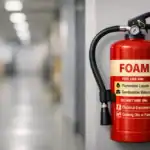
Is it legal to drink alcohol in the workplace? It may not be the most urgent question, but it’s one that every employer must be prepared to answer.
In the UK, there’s no blanket law that prohibits drinking at work – but that doesn’t mean it’s risk-free or advisable. Alcohol problems in the workplace can quickly lead to health and safety breaches, disciplinary issues and potential legal liabilities.
This guide explains when alcohol consumption at work may be permissible, outlines your responsibilities as an employer, and offers practical steps for addressing drinking on the job.
Key Takeaways
- Drinking alcohol at work isn’t always illegal in the UK, but becomes unlawful when it compromises safety or the ability to carry out assigned tasks.
- Even low levels of alcohol increase the risk of workplace accidents, misconduct and legal consequences.
- Employers have a legal duty under the Health and Safety at Work etc. Act 1974 to manage alcohol-related risks and protect employee welfare.
- A clear, written alcohol policy is essential for setting expectations, demonstrating compliance and preventing alcohol-related incidents.
Can Employees Legally Drink Alcohol at Work?
Yes – in some cases, employees can legally drink alcohol in the workplace. There is no general UK law that bans alcohol consumption during working hours or on work property. However, that doesn’t mean drinking at work is always legal.
The law becomes relevant when alcohol compromises safety, performance or public trust. Certain roles, particularly transportation or safety-critical work, are covered by strict legal restrictions.
The most important of these restrictions are:
- The Transport and Works Act 1992 makes it an offence for safety-critical workers (such as train drivers or maintenance staff) to be under the influence of alcohol (and drugs) while working.
- The Road Traffic Act 1988 applies to anyone driving for work. Vehicle operators must stay within drink-drive limits at all times.

The reasoning behind these laws is obvious: you cannot safely operate a vehicle or do precision work while under the influence of alcohol.
This same logic applies in many other industries, even when driving or heavy machinery isn’t involved. If alcohol impairs an employee’s ability to carry out their duties safely, it creates a legal problem for the employer.
Under the Health and Safety at Work etc. Act 1974, employers must ensure the health, safety and welfare of their employees and others affected by their operations. If employees are allowed to drink, and it leads to an accident, the employer may be held liable.
The Risks of Alcohol at Work
Even when it’s not explicitly illegal, alcohol in the workplace introduces serious risks that you can’t afford to ignore. These risks fall into three key areas: safety, performance and employee wellbeing.
Health and Safety Risks
Alcohol impairs judgement, slows reaction times and reduces coordination. These effects aren’t always consequential, but even low levels of impairment increase the likelihood of workplace accidents, particularly in environments that involve machinery, driving, manual handling or working at height.
If alcohol consumption contributes to an accident, the employer may be held liable under health and safety law for failing to take reasonable steps to prevent foreseeable harm. This is true even in settings where physical risk seems low. An impaired employee may still endanger others through poor decisions, inappropriate behaviour or failure to follow procedures.
Performance and Behaviour
Even if there’s no safety risk, alcohol use at work can lead to poor performance, missed deadlines and disruptive behaviour, especially in client-facing roles. It can also undermine teamwork and lower morale, particularly if other staff feel unsafe or unsupported.
Employees under the influence may violate company values, damage company property or compromise sensitive information. These alcohol-related workplace incidents carry both direct costs – in repairs and replacements – and indirect costs to your company’s reputation.
Health, Addiction and Employer Responsibilities
You also need to consider the long-term health risks associated with alcohol problems. Regular drinking (including outside of work) can affect concentration, mood, sleep and attendance. In some cases, employees may be living with alcohol dependency, which can be both a health condition and a safeguarding issue, depending on your industry.
Failing to address alcohol misuse early can eventually affect individuals, teams and the wider organisation. While disciplinary action may be necessary, it’s equally important to offer support. A well-managed response can prevent long-term harm and help employees access the help they need.
Why You Need a Workplace Alcohol Policy
Given the potential consequences, every employer – regardless of size or sector – should have a clear, written alcohol policy. Even if your workplace is relatively low-risk, a policy sets expectations and helps prevent alcohol-related incidents or avoidable legal disputes.
To be effective, your workplace alcohol policy must provide a consistent framework for handling alcohol-related issues. It ensures that managers and employees understand:
- When alcohol is permitted (if at all)
- What constitutes unacceptable behaviour regarding alcohol
- How concerns will be investigated and addressed
- What support is available for employees facing alcohol problems
A clear policy also helps your organisation demonstrate compliance with the Health and Safety at Work etc. Act 1974 and other legal obligations. In the event of an alcohol-related workplace accident, it provides evidence that you took reasonable steps to manage risk.
At a minimum, your workplace alcohol policy should include:
- A statement of the organisation’s position on alcohol at work
- Rules around alcohol consumption during working hours, breaks and work-related events
- Procedures for managing suspected or confirmed alcohol misuse
- Disciplinary actions that may apply
- Support routes, such as referral to employee assistance programmes (EAPs)
For safety-critical industries, or those with high public trust, your policy should be stricter and include clear guidance for alcohol testing and reporting.
How to Address Drinking at Work
Even with a policy in place, alcohol-related issues may still arise. How you respond can make the difference between a manageable incident and a serious legal or reputational risk.
If you suspect an employee is under the influence at work, act promptly but fairly. Follow the procedures set out in your policy. Avoid making accusations; instead, focus on observable behaviour (e.g., slurred speech, impaired coordination, inappropriate actions). Where possible, involve a second manager or HR colleague to witness any conversations.
If there is an immediate safety risk, remove the employee from duty and ensure others are not exposed to harm. In less urgent situations, document the concern and arrange a confidential discussion. You may need to request a medical opinion or conduct a formal investigation, depending on the nature of the role and your internal process.
Keep in mind that alcohol misuse can be a sign of personal issues. A disciplinary route may be appropriate, but it shouldn’t be the default response. Offer support where needed and signpost where employees can get help.
Above all, follow your policy. Employees are more likely to cooperate if they feel you’re being fair and consistent in your response.

Learn More About Managing Alcohol in the Workplace
Understanding the nature of alcohol misuse and its legal context is essential to developing fair and effective policies.
Our online Drugs and Alcohol Awareness Training course gives employers and managers a clear overview of the law, the workplace impact of alcohol and how to respond appropriately.
This CPD-certified course supports informed policy decisions and helps ensure that alcohol consumption never compromises safety, performance or compliance in your workplace.





















